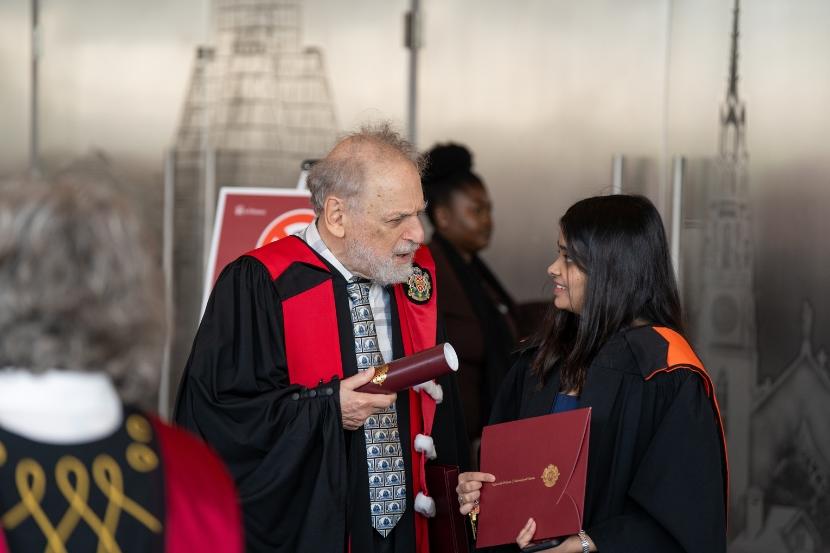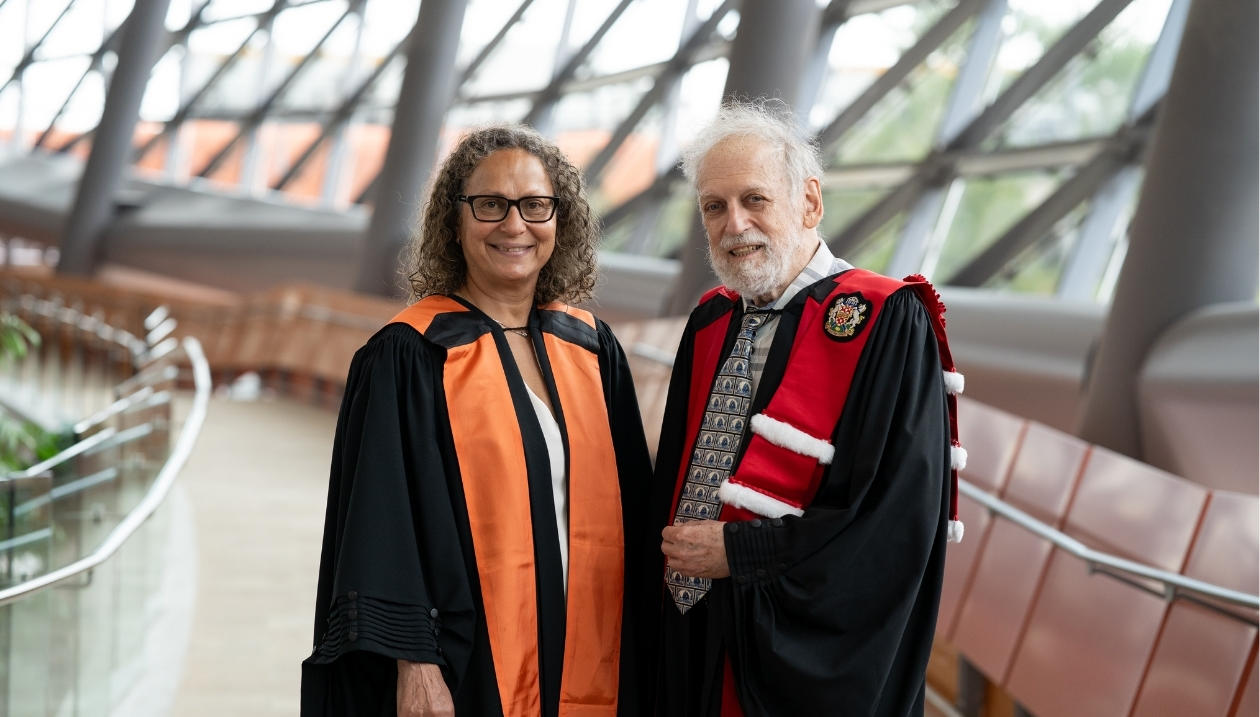When John McEntyre began his engineering studies, computers filled entire rooms and ran on vacuum tubes. While technology has advanced significantly, the uOttawa alumnus feels a strong connection to today’s generation of engineering students.
“I was fortunate,” McEntyre says. “I hit the computers as they were just blossoming.” His career began at the University of Ottawa, where he studied electrical engineering and later taught programming. His contributions have helped shape the evolution of computing first hand, from the development of vacuum tube computers to operating systems.
Since then, he has worked across sectors and continents, for IBM and Honeywell, here and as a consultant internationally.

Fostering interdisciplinary collaboration
During his time at uOttawa, the relationships McEntyre built with fellow students and professors sparked his passion for technology. That spirit of collaboration followed him in his career.
“I started to realize that engineers often operate in an enclosed box,” he says. “An idea is great but it’s not enough. You need to put together a team to see it come true.”
That philosophy is what inspired the John McEntyre Team Space, located on the first floor of the STEM Complex. Like its namesake, this campus space is designed to foster collaboration across disciplines. It gives students the opportunity to work in multidisciplinary teams and consider the impact of their work beyond engineering.
Through his contributions, John McEntyre is enabling students to turn passion into projects and idea into reality. The space is the kind of resource he wishes existed when he was in university.
Witnessing the beginnings of technology: From computers to AI
McEntyre, who received an honorary doctorate at the spring 2025 convocation, sees striking parallels between the early days of computing and the current rise of artificial intelligence. “It’s the beginning of a great innovation,” he says.
He recalls working on early computers and getting excited about their potential. “Back then, I couldn’t believe that we would have smartphones today. With AI, we’re at the beginning of this great innovation that’s going to change the way everything is being done. The future is going to be more than we expect.”
He believes today’s students are in a unique position: they’re not just learning about AI—they’re shaping it. “In the same way I was able to contribute to shape computers, engineers today are going to be at the forefront of the development of AI.”
After a career spent at the cutting edge of technology, his advice to the next generation is simple: “Jump in,” he says. “It’s an exciting time to become an engineer.”
